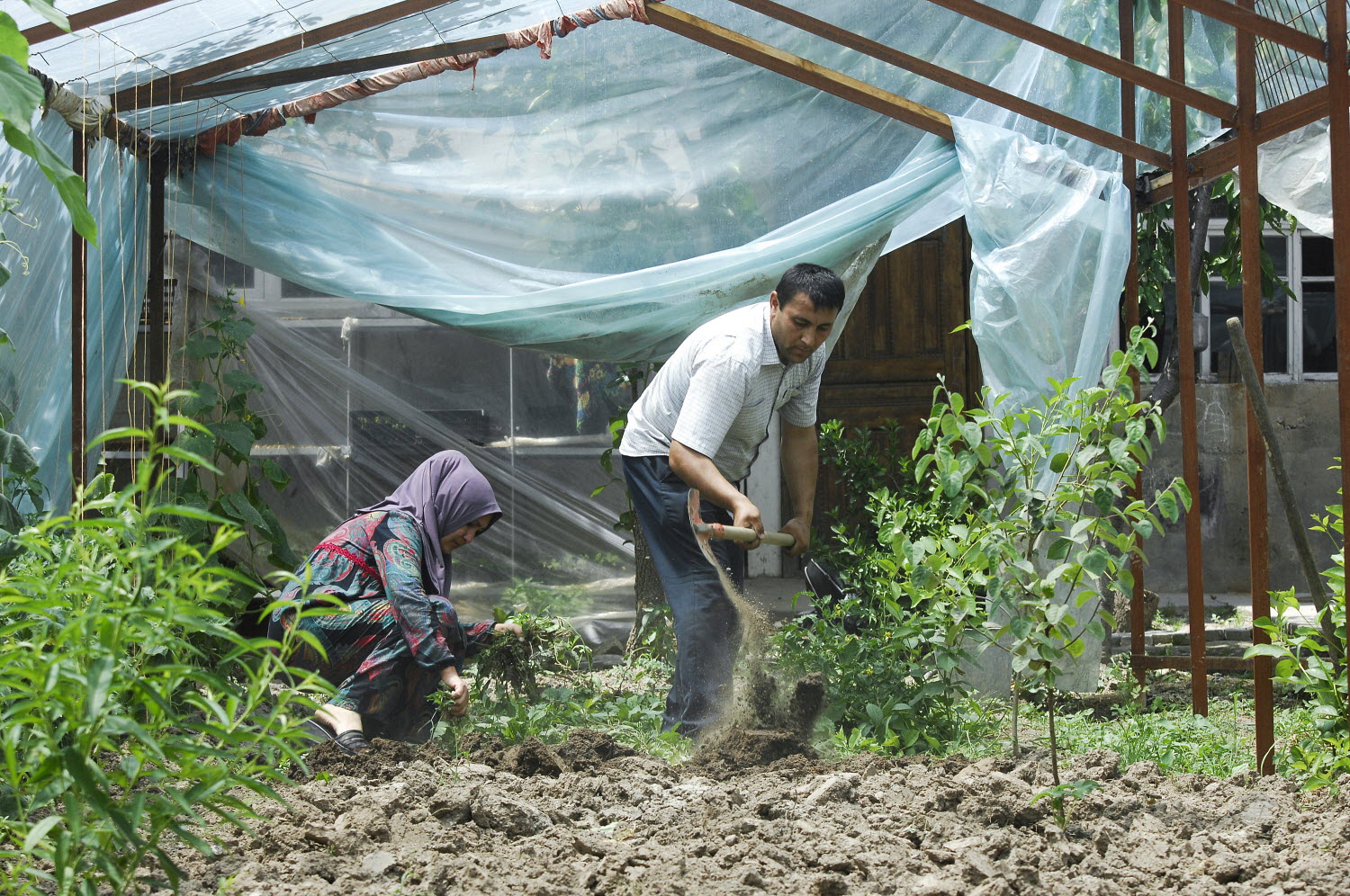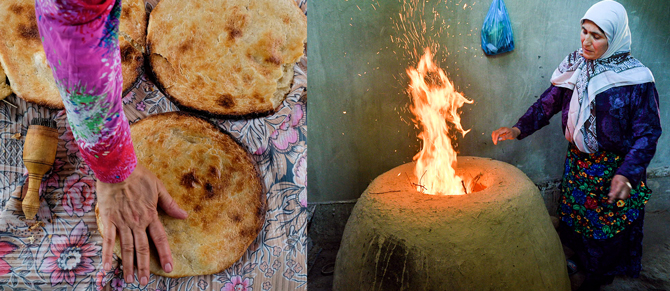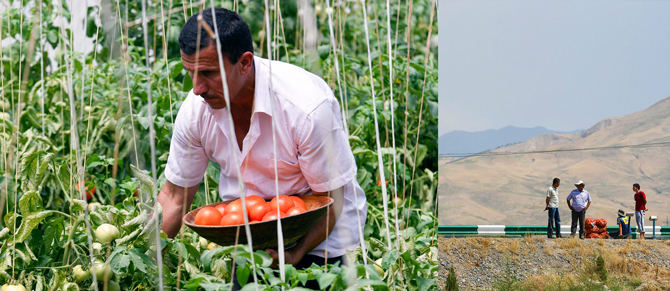A cascade of rural investment will benefit Tajik farmers

Farmers in Tajikistan have low capacity to cope with climate change impacts threatening the agriculture sector. Heat extremes, droughts, and changes in rainfall and temperature patterns are impacting productivity and livelihoods for 46 percent of the population who live in the country’s rural communities.
The new investment is expected to improve access to climate-adaptive agriculture technologies, resources and services.
“The goal of the new investment is to boost farmers’ incomes and sustainable livelihoods,” said Tommaso Alacevich, Economist at the Food and Agriculture Organization of the United Nations (FAO) Investment Centre, and project design team lead. “Farming communities in Tajikistan will be empowered to access modern, climate-resilient production methods, building resilience and productivity.”
USD 13.5 million will be immediately mobilized to farmers from the International Fund for Agricultural Development (IFAD), plus an additional USD 24.3 million in the IFAD pipeline – with further investment from FAO, the government and beneficiaries. Project design was led by FAO and IFAD, with the vision of being co-financed by the Green Climate Fund (GCF) – which is currently under appraisal.
Together, this is expected to reach an overall investment of USD 99.5 million and sharpen the climate-focus.

Investing in climate-proofing communities
In Tajikistan, there is huge potential for agriculture development alongside opportunities to build resilience.
The country is one of the most vulnerable to climate risks in Central Asia, with one-fifth of the population already impacted by food insecurity. Development of the agriculture sector is constrained by limited access to agricultural machinery, equipment and services – reducing crop productivity by an estimated 20 percent.
In many rural communities, people are living in extreme poverty and are often either landless or surviving on minimal subsistence from small household plots.
The Community-Based Agricultural Support Project (CASP+) builds on expertise developed through ongoing IFAD-led community-based agriculture projects and livestock and pasture development initiatives, to mobilize loans and grants to Tajikistan’s rural communities from IFAD, FAO, GCF, the government and beneficiaries.
Project design was led by the IFAD country director together with technical experts from the FAO Investment Centre. The Office and the FAO Representation in Tajikistan also contributed. It will be implemented by the Tajikistan’s Ministry of Agriculture, the Committee on Environmental Protection (also the National Designated Authority at the GCF) and FAO-Tajikistan.
“This is an excellent example of successful collaboration between IFAD and FAO through the FAO Investment Centre,” said Mikael Kauttu, Country Director for the IFAD portfolio in Tajikistan. “Despite its complexity and size, project design went smoothly and the project is appreciated by the government and highly appraised at both FAO and IFAD – indicating how the capacities and mandates of our two institutions are compatible.”

Supporting the most vulnerable farmers
Approximately 650 000 people in Khatlon and Soghd regions – the most climate vulnerable areas of the country – can expect to benefit.
Investments will be targeted at improving pasture and forestry management in 400 villages, through community-level training and grants, with the goals to enhance productivity, generate employment and protect biodiversity – together building community resilience.
Rehabilitation of degraded forests and pasture, alongside improved management of livestock herds, and improved agricultural practices, is expected to contribute to the sequestration of over 6 million tonnes of CO2 equivalent (tCO2e).
Investments will also help to transform public sector capacity for climate-resilient natural resource management. Local community-led planning and access to investment for climate adaptation is expected to be boosted.
Strengthening linkages between rural communities and the private sector is an additional focus, with the goal to generate more climate-resilient value chains, expanded employment opportunities and higher incomes for farmers. For example, youth will be trained on artificial insemination and equipped to operate private veterinarian enterprises.
Environmental innovations will be pilot tested, including a pioneering approach to pasture monitoring involving the placement of beehives on agricultural land. The bees will be used as a ‘bioindicators’ – living organisms which screen the health of the natural ecosystem in the environment – through scientific analysis of their pollen.
Supporting village groups to adapt
Rural institutions and dehkan groups– such as Village Organizations and Pasture Users Unions – will be supported to sustainably manage natural resources and pasture, diversify their livelihoods and become more market-oriented
The aim is to enable farmers to produce and harvest crops more efficiently, due to the wider availability of mechanized services, at fees which are affordable to households.
“Tajik farmers can expect to see higher productivity, reduced costs of their agricultural activities, higher quantities of agricultural outputs sold to markets and improved food security and nutrition,” said Kauttu. “We anticipate that farming communities will become increasingly economically viable and environmentally sustainable.”
